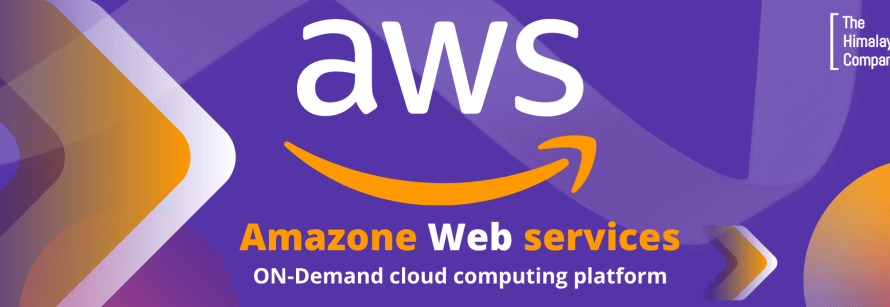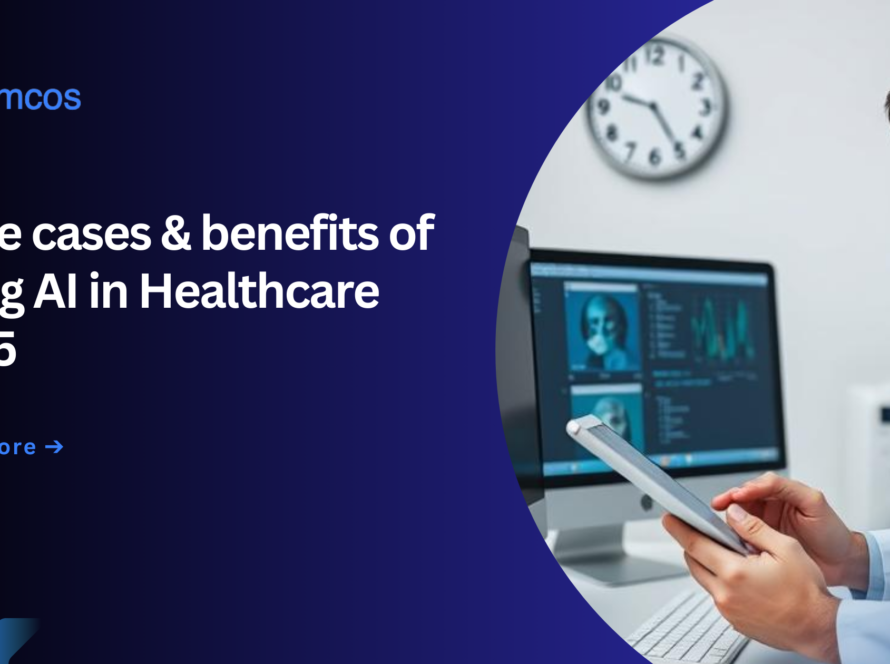Artificial Intelligence (AI) is transforming healthcare by enhancing patient care through advanced technologies. AI systems analyze extensive medical data, leading to quicker and more accurate diagnoses, personalized treatment plans and improved patient outcomes.
By using machine learning algorithms, AI identifies patterns in patient data that might be overlooked by human eyes, resulting in more effective interventions. Additionally, AI-driven tools help streamline administrative tasks, easing the workload on healthcare professionals and allowing them to concentrate on direct patient care. As AI evolves, its role in healthcare continues to expand, making care more precise, efficient and accessible.

Table of Contents
What is AI ?
Artificial Intelligence, in abbreviation AI, describes computer systems designed to perform tasks that would normally require human intelligence. These include learning from experience, recognition of patterns, comprehension of natural language and decision-making. AI comprises an extensive variety of technologies ranging from simple machine learning to where systems enhance performance based on data and deep learning, a type of machine learning using an architecture with a structure much like the human brain to analyze complex data.
Applications range from virtual assistants and recommendation systems to advanced robotics and autonomous vehicles. An AI, processing voluminous data and learning continuously from new inputs, will further improve efficiency and innovations in many walks of life, such as healthcare, finance and entertainment.
Need of AI
AI serves modern needs through its complete automation, analysis of complex data and enhancing decision-making. Through its adaptability and innovation, it propels progress and therefore has become a need across various industries.
• Efficiency
AI automates repetitive work, increasing productivity and accuracy. For instance, chatbots answer customer queries, saving time that customers used to spend waiting, freeing human workers to invest their time in more complex tasks. This automation of processes quickens the process and makes it error-free, hence enhancing the work and making it more efficient.
• Data Analysis
AI process a great deal of information in high speeds and pinpoint patterns and trends that otherwise would have been missed through manual efforts. This informs businesses with substantial decisions, predicts trends and optimizes strategies for better performance and strategic planning.
• Personalization
AI enables personalization of experiences and recommendations, considering individual preferences and behavior. Examples include streaming services recommending content based on one’s viewing habits, while e-commerce sites have recommended products to make any given user interaction more relevant and engaging.
• Innovation
AI also triggers further development in many other fields, such as medicine. Its facilities of diagnostics and treatment design allow for great accuracy, increasing the possibility of restoring health. Additionally, complex medical data analysis and the ability to simulate biological processes spur innovation towards more effective solutions and discoveries.
• Accessibility
This is where, through technologies like Speech Recognition and Machine Translation, accessibility is taken to the next level. AI technologies assist people with disabilities in making more inclusive digital experiences and breaking barriers to ensure so much better communication and interactivity.
•Problem-Solving
Artificial Intelligence tries to solve complex challenges with new insights and solutions. For instance, AI models take environmental data and create methods for fighting climate change or optimize available resources, hence presenting new approaches to critical global issues.

Introducing AI in Healthcare
The use of AI in the health sector brought a paradigm change in the perspective of advances and revolution in the field of medicine. AI is to be considered as a smart computer that, in reality, perform works that would require human intelligence.
It is ultimately causing a complete change in the way better and improved levels of care are provided to the patients with reduced numbers of errors.
This article provides an insight into some of the important points that will highlight the role of AI in the field of medicine.
• Early disease detection and diagnosis
AI technology help doctors find and predict various diseases at their early stage, as AI systems have the ability to analyze huge amounts of medical data of different patients and identify the different signs and symptoms of that particular disease at an early stage of its occurrence.
Diseases like cancer and heart problems, early diagnosis through algorithms of AI, are better treated by the doctors and result in higher recovery chances of the patients. AI’s capability to analyze medical images, like MRI, X-rays and CT scans among others, with proper analysis of the patient’s records help the physician provide an accurate diagnosis on time, extremely important for timely treatment.
• Enhancing patient safety and reducing medical errors
Artificial intelligence in health systems is safer since it reduces mistakes within the healthcare settings. AI Systems review vast amounts of data belonging to a patient by noticing the risks involved and warning health professionals of the same. The Artificial Intelligence systems also help in monitoring patients’ vital signs and detect any serious, unusual or concerning changes on time.
The strategy of enhancing patient safety by integrating Artificial Intelligence will support the healthcare providers in delivering an advanced level of care by avoiding errors that might be harmful to the health of the patients.
• Streamlined administrative tasks
It helps in easing and quickening things at the administrative side. Artificial Intelligence technology is utilized by an organization to reduce manual paperwork, hence reducing the chances of manual error, saving time and effort and improving overall efficiency.
It also helps in simplifying various tasks like scheduling appointments, maintaining records of patients, billing process, managing insurance claims, etc., which helps the workers to spend more time in the process of taking care of patients rather than spending time on lots and lots of paperwork and other administrative tasks.
• Ensuring data safety
AI in the healthcare segment makes it attain confidentiality for sensitive patient information and protects it from falling into unauthorized access or any other kind of cybercrime. With AI, the health professionals implement different robust security measures including encryption, regular security audits and strong passwords to ensure patient data privacy and security.
This keeps data safe from the cyber-threat, hence building trust between the patients and healthcare organizations because such valuable information will be well-protected.
• Personalized treatments
Every human has his needs; hence, whatever works for one person may not work well for another. Artificial Intelligence technology assists the doctors in making a specified treatment plan which is tailored according to medical care of the individual based on his unique needs.
AI analyze vast data, like medical history reports and genetic information, with multiple factors considered in context to the individuals’ lifestyles, to come up with a treatment plan that is genuinely personalized. This allows the persons concerned to get optimal care built specifically for their unique needs.
• Improved patient outcomes
AI has resulted in improving the overall patient health. AI help in early detection of diseases and provide the patients with personalized treatment plans along with helping the doctors in making better decisions for accurate treatment plans to provide the patients with an overall better and improved care.
Artificial Intelligence analyze bulk volumes of data and, hence, help in identifying major patterns that doctors might miss while going through the process of examination for the exact disease a patient is suffering from.
• Optimized Resource Management
AI smoothes resource management in healthcare by predicting patient demand and smoothing workflow. AI forecasts peak times for visits by patients through the analysis of data, which hence helps in efficient staffing and resource management in hospitals. The technology enhances inventory management for better outcomes, as the needs for medical supplies and equipment become predictable, which cuts down on waste and stockouts.
The examination of patient flow and patterns of operation assists AI in appointment scheduling, managing room assignment and coordinating services for care. This leads to much smoother operations, reduced waiting times and better exploitation of the resources towards the delivery of healthcare. In this respect, there is a big outcome where the general efficiency and effectiveness in healthcare delivery are improved.
• Accurate Diagnoses
Advanced algorithms enhance diagnosis accuracy with improvements in the ability to interpret medical images and patient records. The AI systems analyze complex imaging data from MRI, X-rays and CT scans and pick up subtleties and anomalies that might just evade the human eye.
They also analyze the patient’s records for past history and investigations in correlation for giving a list of differential diagnosis. Integrating such inputs, AI reduces the chances of diagnostic errors and makes more appropriate assessments. This will, in turn, facilitate the early detection of disease, proper treatment planning and better patient outcome, hence going a long way in advancing the quality of healthcare.

Artificial Intelligence is structural in bringing a sea change in patient care. Thus, AI changes everything from early disease diagnosis and personalized treatment to improving patient safety and reducing administrative burdens. It helps diagnose more precisely, minimize errors while dispensing medication or performing other procedures and manage patient information better to realize improved health outcomes.
As AI technology evolves, so does its potential to continue improving health care delivery, promising further innovations and efficiencies. Integration of AI not only supports healthcare professionals in providing more precise and effective care but also builds trust by safeguarding patient information. Acceptance of this advancement in AI will accelerate progress in the delivery of healthcare toward a future of improved patient care and operational excellence.
How does Himcos help?
Himcos provides SaaS Update and software modernization services. Our team isn’t just skilled, you get the best minds tackling your modernization project, ensuring exceptional quality and results. Our experts help improve performance, reduce costs, enhance security and foster innovation providing our clients with scalable, secure and high performing applications.



